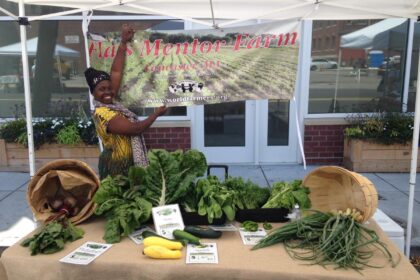
“One way to take alliance building a step further is to reframe issues so that they’re no longer issues, which can be divisive, but values, which have more power to unite.”
This notion, lifted from an excellent article by Kristin Moe, is just one of countless impactful ideas from Food Solutions New England’s Racial Equity Challenge that resonated with us. At World Farmers, our work digs into several politicized “issue” areas: immigration, racial healing, sustainable agriculture, nutrition, poverty, climate change, and endless others.
The very word issue connotes a problem, and a problem implies a clear answer. In the complexities of this work, we have come to know that there is no one quick-fix solution to the challenges we face; certainly, no one knows this better than those already caught in the crosshairs of the struggle for equity. World Farmers sees that, in well-intentioned efforts to make a change, individuals or organizations often attempt to design attractive solutions that can be easily replicated to assist others facing the “same issues.” We worry that this approach makes us all less responsive to organic solutions coming from the communities one intended to help.
Imagine if, instead of thinking in terms of problems and solutions, we did truly frame these issues as values. In that frame of mind, immigration is an application of the virtue of hospitality. Sustainable agriculture could easily be seen as an extension of respect. Poverty is perhaps a question of generosity, equality, and fairness. While even thoughtful people prove infinitely capable to squabble over issues, very few would condemn these clearly positive values. This line of thinking also removes the tempting idea of solutions: rather, we must judge our success by how well we continue to act, day over day, in a manner in line with our stated values.
Language, then, is important; it gives structure to our perspectives, and can reframe and shift cultural or societal understanding. But language needs to be heard to be impactful. For voices that are systematically silenced, deliberate effort must be made to provide a platform.
Last month, World Farmers went live with Our Voices Matter, an online space for expression, exchange, and discussion about the issues that matter to our diverse community of immigrants and refugees. World Farmers continues to stress that the truest way to understand and connect with each other is through person-to-person interactions. Yet we feel that providing a free space for expression, in any mode or language, is one of many small steps we can take toward more profound racial equity. We humbly hope that you engage in Our Voices Matter, and consider it a place where people think in values, not issues.
Located in Lancaster, Massachusetts, World Farmers is a small non-profit that provides immigrant and refugee farmers with access to land, resources, and markets. In addition, we offer trainings that help our farmers, all of whom come from agrarian backgrounds, to successfully adapt their skills to the climate and culture of the Northeast. Our small team works with over 250 farmers from all over the world, so interpersonal, linguistic, and broad cultural differences are constant sources of both challenges and inspiration for us.




